Sam Darnold, Justin Fields, Zach Wilson, Deshaun Watson or maybe even Matt Stafford? Today, we rank the New York Jets’ quarterback options.
This moment feels about right. Late January 2021 with only the Super Bowl ahead, it’s time to place concrete options into the ether. Sure, it’s fun to speculate and bandy about the football quarterback campfire, but with so much time remaining until the league year officially starts, anything prior to February remains speculation.
After all, just several days ago, nobody had any idea Matthew Stafford was on the trading block, and much more will surface in the coming weeks. It’s still premature for a front office to know exactly where it’s headed at this early stage, but at least the football season is nearly over. (Some diehards would argue it is over, as the Super Bowl doesn’t count for a variety of casual reasons.)
Sam Darnold, Justin Fields, Zach Wilson, Deshaun Watson and the previously-mentioned Stafford are the options. The correct order for the New York Jets future is what’s currently up for debate.
7. Stafford trade for too many assets
The other quarterback in the Mark Sanchez 2009 NFL draft class just so happened to be snagged No. 1 overall by the Detroit Lions. That other guy just so happens to still be NFL active.
Matthew Stafford will be traded by the only professional football team he’s ever known.
Stafford and the Lions recently agreed to mutually part ways this offseason, per ESPN’s Adam Schefter. That means the 32-year old (33 on Feb. 7) will fetch draft capital for Detroit. The question remains: Just how much?
The attractive part is that the man is only due $20 million and $23 million over the next two years, respectively—the final two years of his original five-year deal.
In 2011, then-33-year old Carson Palmer fetched a first and second-round pick via trade. The No. 2 pick is off limits and anything more than one first-round pick is probably too much considering the other options at play. (Without the plentiful options on the table, much more could be argued as the right play.)
Besides, how would the Jets feel about relenting draft capital for a soon-to-be 33-year old when a 25-year old stud is also available?
6. Darnold without the option
Truth be told, the No. 7 and 6 options on this list shouldn’t even be options at all. Stafford at the wrong price and Sam Darnold in any form is Tom Cruise running around his parents’ house in his underwear.
The risky business that is bringing Darnold back without picking up his fifth-year option doesn’t align with what’s happening within the organization. (Picking up a fifth-year option that would cost the Jets north of $20 million is a non-starter at this point.) General manager Joe Douglas and new head coach Robert Saleh are now nearly aligned with contract terms. Running it back with Darnold would mean the team would be looking to start the quarterback window in 2022.
No matter how Darnold arrived at this point, he is, indeed, here. Whether it was poor coaching or not, Darnold’s true tape evaluation showcases troubling trends.
He has trouble reading defenses and rarely sees anything past any singular read or target. Darnold locks onto a read pre-snap or experiences tunnel vision when throwing to a specific target—rarely seeing past the primary defender.
I'm just not understanding everything. The route opposite Cager. Sam Darnold just not letting it go when it's obviously there. #TakeFlight pic.twitter.com/Ono86GXUQs
— Robby Sabo (@RobbySabo) October 5, 2020
More Sam Darnold flat-out missing guys. The defense literally handed the Jets a gift on this one, but they just couldn't capitalize. #TakeFlight pic.twitter.com/IWz8yl3s8O
— Robby Sabo (@RobbySabo) October 5, 2020
Things are still not adding up on the Sam Darnold front. When things are this bad, there's no question that more than one person is to blame; Darnold isn't alone in this. But to not read things pre-snap like this is a consistent Darnold feature. #TakeFlight pic.twitter.com/pj1S4y1YjT
— Robby Sabo (@RobbySabo) October 26, 2020
Darnold can have success in the NFL; that’s not the issue. The issue is that most quarterbacks can have success in today’s NFL thanks to the defensive-discriminatory rules. And the idea that his rookie deal is nearly done makes things unappealing.
Could Darnold be a legitimate superstar quarterback? The answer, at this point, should be obvious. Plus, rolling with the kid in his fourth year flies in the face of the modern salary-cap team-roster building strategy (more on that later).
5. Stafford trade at the right price
Acquiring Matthew Stafford at the right price is where the rankings unofficially begin as viable options.
Stafford threw for 4,084 yards and 26 touchdowns to 10 interceptions in 16 games for Detroit this past season. His average of 7.7 yards per pass attempt ranked ninth-best in the NFL. The man can still sling it, but this current league is a much different landscape than the one Stafford entered in 2009.
Mobility that allows the offense to feature a dual-threat quarterback is an invaluable piece to today’s league. And at 32, dishing out assets for a veteran would be a tough pill to swallow with two youngsters staring at Douglas in the face in the two-hole.
Perhaps the No. 23 pick and a third-rounder would suffice as the right package for Stafford.
4. Watson trade for too many assets
The Jets should do everything in their power to acquire Deshaun Watson. Right? Well, not exactly.
Hopping on the “do anything possible” train leads to insane scenarios. Greed spikes and emotions explode when that’s the mindset carried into negotiations—on both sides.
If Douglas finds himself in the middle of a bidding war against the Miami Dolphins, for example, the Houston Texans would be sitting pretty. Rarely does a franchise quarterback become available like this. Then again, rarely does that franchise quarterback have a no-trade clause.
They key in the Jets possibly acquiring Watson will likely come down to the utilization of that no-trade clause. Understanding who Douglas is as a team-builder, it’s likely that he’ll pass on Watson if the price becomes too high. There will be no Mike Tannenbaum or Mike Maccagnan “sell your soul to the devil for the headline-grabbing move” action this time around.
Watson picking one team and ensuring that the Texans understand they must negotiate with that one team is the key to the entire process. After all, the goal for Watson is to get to his new franchise without it yielding too much in return.
A package consisting of the No. 2 (first round), No. 23 (first round), No. 34 (second round) and a 2022 first-round pick is probably the least of the “too costly” side. Three first-rounders is fine, but dishing out No. 34 in addition just puts it over the top. (Obviously, anything more than that also qualifies for the “too much” column.)
What needs to be considered is the idea that the No. 2 pick can possibly yield similar results to Watson over time and at much less of a cost. It’s unlikely, but the possibility must be considered.
3. Justin Fields
The wild-card in the Watson trade discussions is the no-trade clause. The wild-card in the Watson possibility is the rookie wage scale.
Although Douglas is a football player at heart, he’s as salary-cap savvy as anybody in the NFL. Understanding how modern football programs are built sort of flies in the face of a Watson acquisition.
Snagging Justin Fields or Zach Wilson in the two-hole would automatically set the Jets up for complete flexibility and margin for error. Having a franchise quarterback earn somewhere around $8-$9 million a year over the first four seasons of his career increases the overall health of the roster.
Just look at the past decade.
The Seattle Seahawks were built upon this principle. Russell Wilson earned peanuts as a third-round pick. Obviously, the drafting and player development have to be of quality. But the rookie wage scale has changed everything.
Seattle rode the strategy to its first championship. The Los Angeles Rams with Jared Goff and the Philadelphia Eagles with Carson Wentz also found success this way. The Kansas City Chiefs, led by Patrick Mahomes‘s modest salary, also kickstarted their program this way. The Baltimore Ravens near the end of Joe Flacco‘s rookie deal also led to big things. Even the San Francisco 49ers led by Colin Kaepernick and Washington Football Team led by Robert Griffin III saw this success during the early part of the decade.
In fact, other than Tom Brady, Peyton Manning and Eli Manning, the Super Bowl champs have followed this new cheap-quarterback gospel (since implemented a decade ago).
Moreover, once the quarterback gets paid, his team oftentimes takes a step back. See Flacco and the Ravens post-2012 and Wilson and the Seahawks as of late.
A top trend here is that this strategy is talent-proof at times. How good is Goff or Wentz? How good were Kaepernick and Griffin? The goal is to obviously draft a true franchise quarterback, but the rookie wage scale allows for so much roster freedom than the overall talent takes an incredible amount of pressure off the quarterback.
Justin Fields at No. 2 would allow Douglas to take the flexible and plentiful route to roster success.
2. Zach Wilson
Zach Wilson’s candidacy falls directly in-line with the rookie wage scale sentiment. He’s simply ranked ahead of Fields due to translatable ability.
It’s close between the two, no question; but Wilson’s arm is livelier and he seemingly fits into today’s football landscape a bit more seamlessly. At this point, the arguments for Fields and Wilson are the same. How anybody ranks the two is a worthwhile debate.
Zach Wilson highlights vs. UCF.
What have we learned? Not much that we didn't already know. Tremendous release, solid mechanics, mobile, arm angle variety, great placement. Tonight doesn't offer anything deeper, but still, it ain't a bad night from the kid. #Jets pic.twitter.com/OWMkSStzGP
— Jets X-Factor (@jetsxfactor) December 23, 2020
1. Watson trade at the right price
Coming in at No. 1 is Deshaun Watson at the right price. (And yes, separating Watson at the wrong and correct price is key.)
Make no mistake about it: Building the program with Watson is far different than a rookie quarterback at No. 2. Everything changes, as not only would the Jets have a surefire quarterback, but they would also have far less flexibility elsewhere.
Watson’s $15.9 million cap hit in 2021 looks pretty, but his numbers starting in 2022 are frightening.
- 2022 cap hit: $40.4 million
- 2023 cap hit: $42.4 million
- 2024 cap hit: $37.4 million
- 2025 cap hit: $32 million
For many fans, Watson’s salary is quite meaningless thanks to the Jets’ healthy cap situation. But it’s quite significant in the grand scheme of things.
In acquiring Watson, nearly every move Douglas makes from that point forward will need to hit in a drafting world that features even the best talent evaluators getting things wrong at times. There will be far less salary cap space and the team will be without at least three first-round picks. Obviously, the capital acquired in the Jamal Adams trade makes the entire idea easier to come to grips with, but it should at least be wrestled with to some degree.
Watson for the No. 2 (first round), 2022 first-round pick, 2023 first-round pick and Sam Darnold is a deal that should be done in a heartbeat and is well worth the No. 1 ranking on this list. Other possibilities include No. 2, No. 23 and a 2022 first-round selection—although that’s the furthest I would go before putting Wilson tops on this list, and even that is a stretch.
Darnold can obviously be included. Any mention of Quinnen Williams or Mekhi Becton is a dealbreaker.
In the end, it makes sense that Douglas will be involved on the Watson front. He’s always taken pride in the idea that he picks up the phone and considers all possibilities. But it also makes sense that he’ll look to snag him on a bargain.
The rumored trade packages in the current ether are most likely too much for Douglas when Wilson or Fields (and that cheap quarterback salary) is staring directly into his eyes. And considering the importance of Watson’s no-trade clause, if the Jets do pull it off, I suspect they’ll acquire the stud quarterback for far less than anybody currently thinks.
Trading for Deshaun Watson is the clear No. 1 quarterback option. The New York Jets just need to make sure it’s handled the proper way. And with Joe Douglas running the show, I don’t see an overpay for Watson as a realistic possibility.

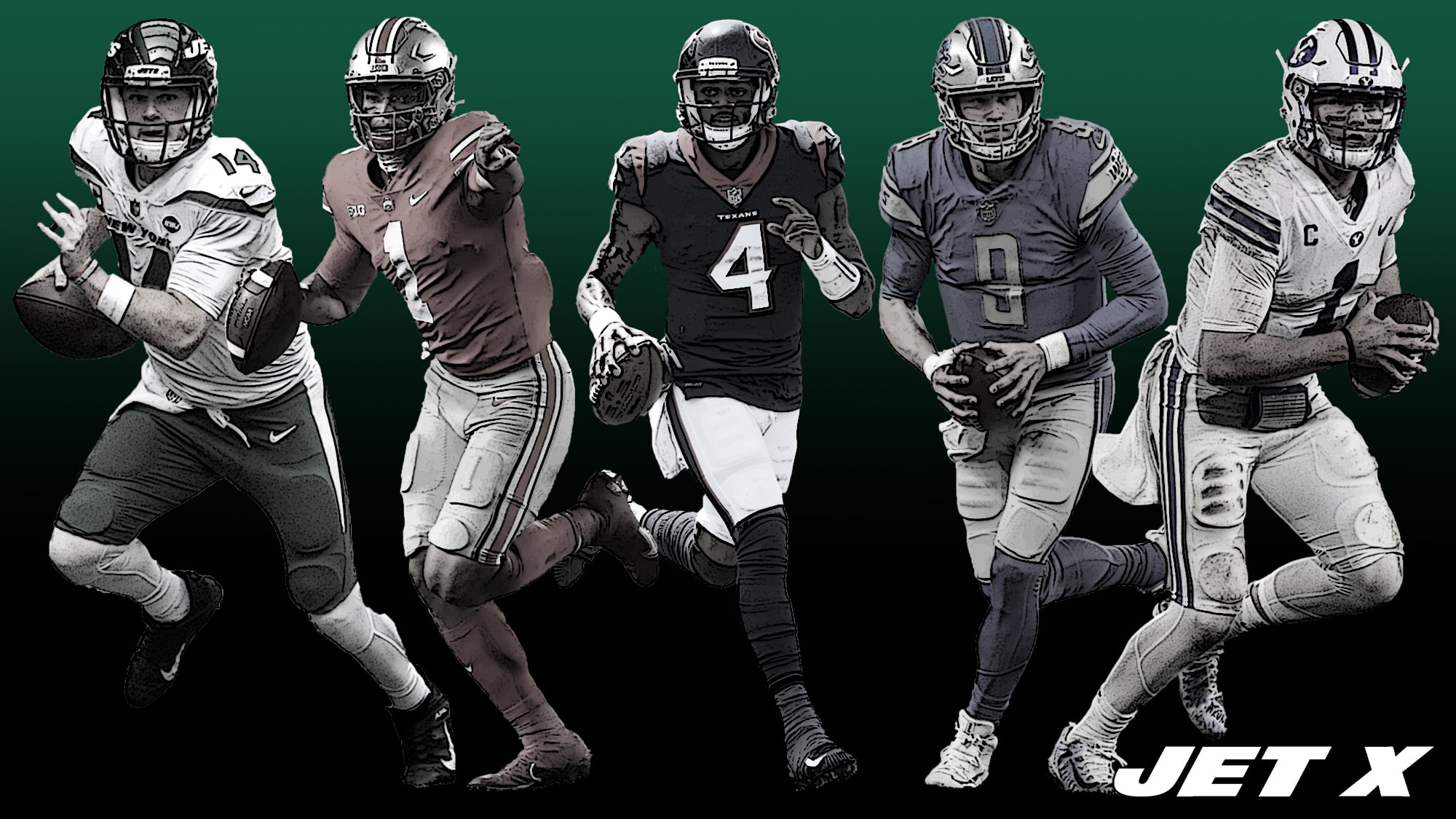
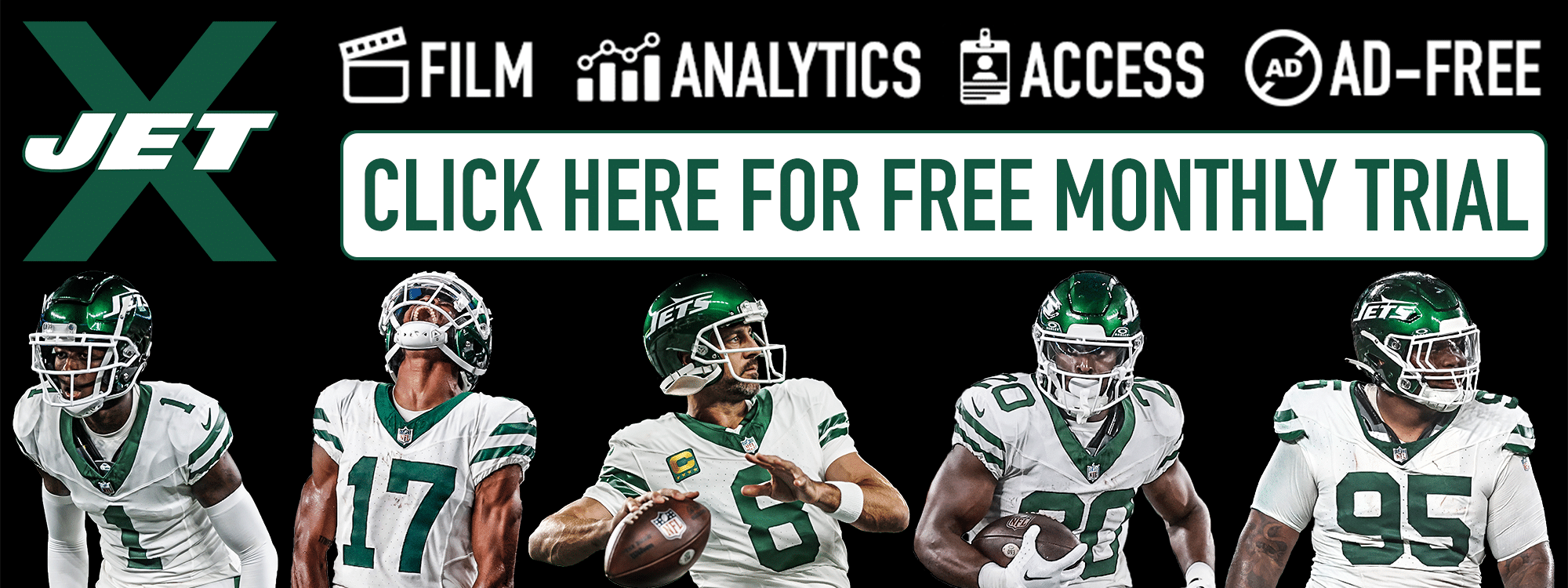




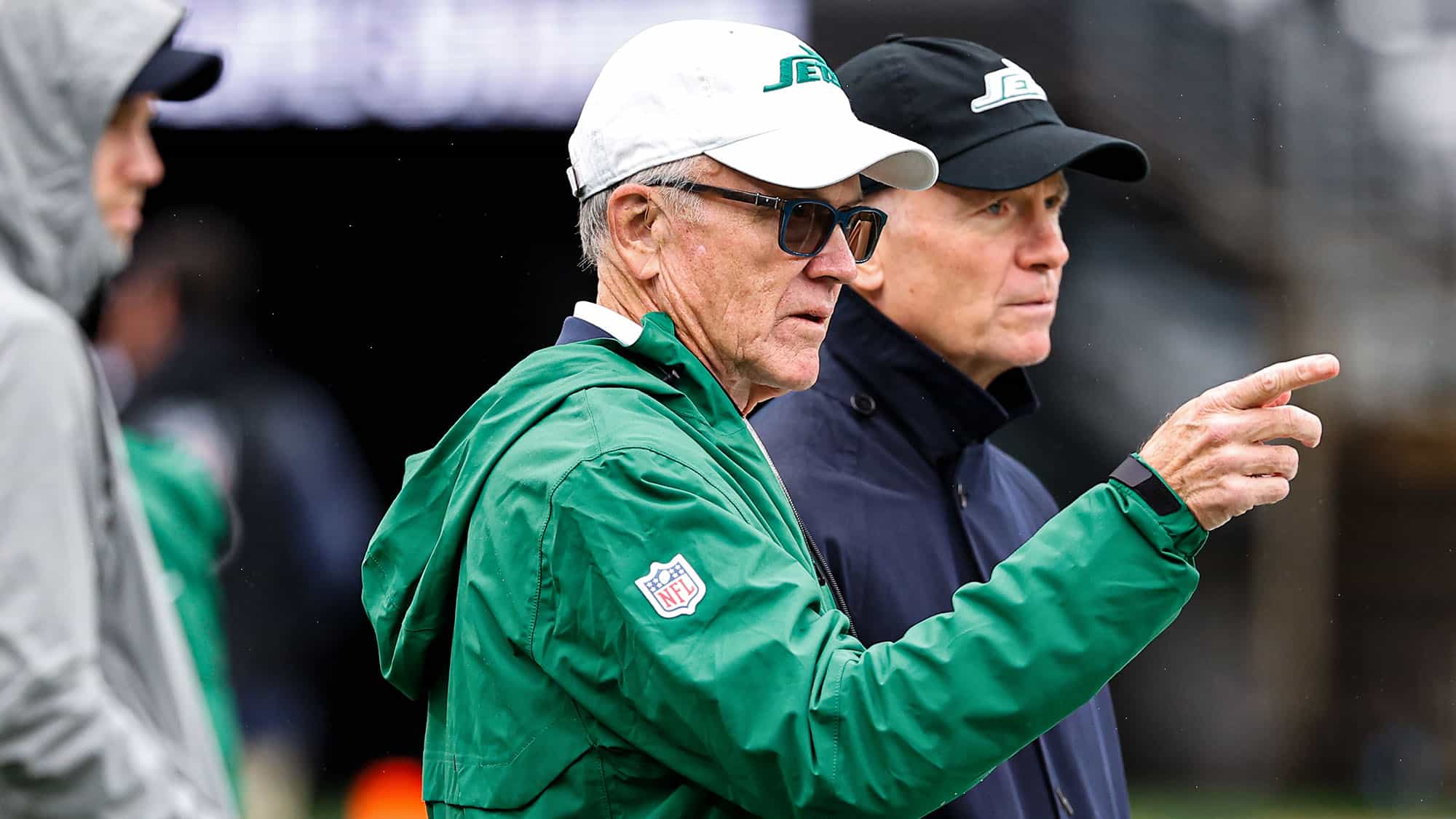

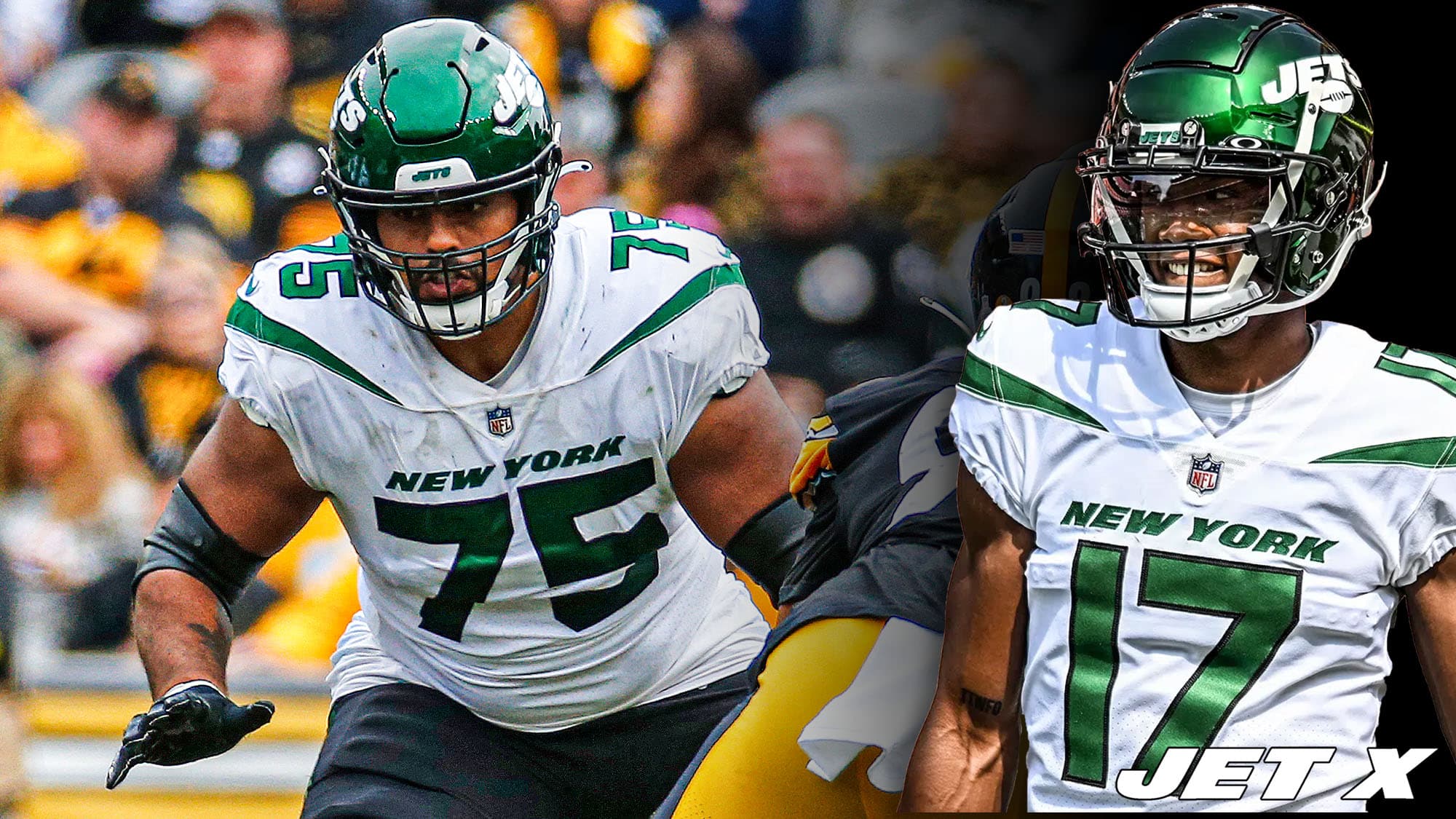




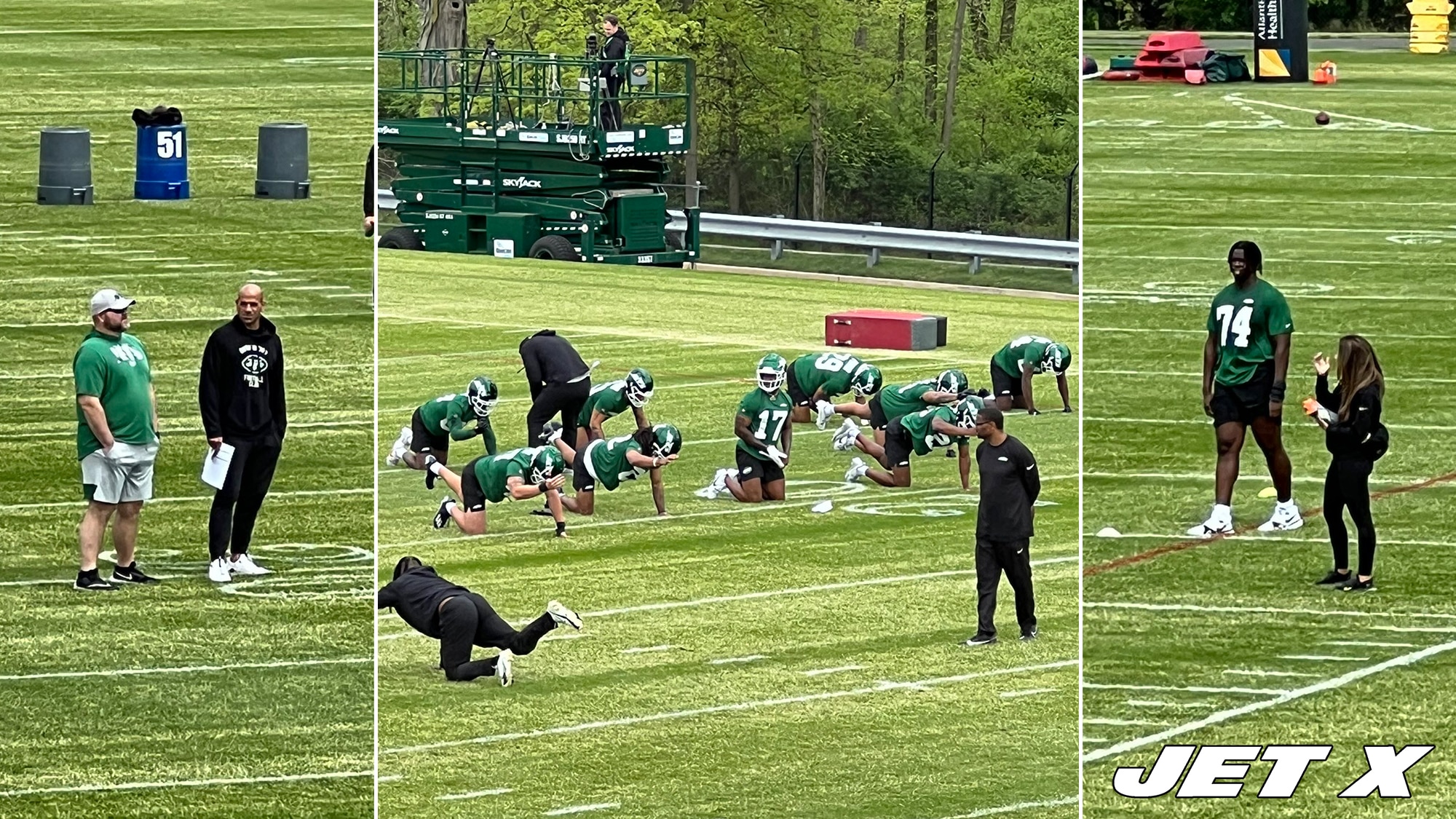
A guy over at Jet Nation wrote an interesting concept where the Jets would actually extend Darnold now at a discounted rate vs. his 5th year option with an out after 2021 if Sam doesn’t pan out with a new OC and system. If cut, the dead money hit in 2022 would be manageable enough to absorb while his replacement is developed on their rookie deal. Do you see any reason that Douglas/Saleh would want to roll with Sam vs. just restarting the rookie clock by drafting Wilson or Fields? The author’s point being Sam has little leverage and may have to adjust to backup money going forward anyway. So signing an extension now may be his best chance to earn starter’s money
I highly doubt Darnold would want to sign a modest extension – especially with an out after 2021 – when he can play for his much larger 5th year option and then a bigger deal after that. Even if he doesn’t earn the 5th-year option because he either struggles or is someone’s backup with a new team, he should get a strong opportunity in free agency the following year being as young as he is, either as a starter or high-tier backup (place where he has a high chance of getting to play soon), and he can play himself into a huge deal with just one solid season on a one-year deal. Look at what Teddy was able to earn himself with just 5 good starts.
So I don’t really see the incentive for Darnold to sign an extension with a one-year out that earns him less than his 5th-year option if he succeeds enough to last beyond 2021. Sure, the Jets might like that kind of deal, but what is Sam getting out of it? If he plays well, he earns far less than he would have if he played well without signing the deal. If he doesn’t, the result is the same as if he didn’t sign it because he gets cut and hits 2022 free agency anyway. It’s arguably an even worse situation because if he is cut after signing the extension it will mean he wasted another year struggling with the Jets, whereas if he were simply traded, he could have spent the 2021 season jumpstarting the process to a new contract with a fresh start elsewhere.
I also see little reason the Jets and a new regime would want to sign him to an extension when they can reset the rookie contract with a new pick who is unhindered in the NFL and can be built in their system and culture from the ground up, rather than taking on damaged goods in Darnold who had some of the worst tape and production at QB in 2020. A new QB is also an instrumental piece in signaling the changing of the culture, which is obviously the #1 reason Saleh was brought in. He’s going to want to put his stamp on the team, and I would think QB is a big part of that – not that Darnold isn’t a great culture guy, but I don’t think having a lame duck QB is the best situation for ushering in a new culture, whereas adding someone new who is the clear and obvious long-term face of the team makes it much easier to build team camaraderie. It makes it clear what the direction of the team is.
Another key component is that I think it’s important to know who your long-term QB is so you can adjust your team-building on offense to his strengths and weaknesses. If you have a QB on a one-year trial, it’s hard to construct a long-term vision for your offense with no guarantee as to whether he will be back the next year. On the other hand, if you have a draft pick lined up for the next 4 years, you can build your offense with his skill-set in mind, acquiring receivers, backs, tight ends, and linemen who fit the scheme and philosophies that best complement the QB.
Anything is possible – it cannot be ruled out that Saleh and LaFleur just love Darnold and want to work with him – but the smart bet to me is that a new regime is going to want to get all of the major positions (HC/OC/QB/GM) on the same timeline, refresh the rookie QB contract, get a highly moldable piece of clay that they can nurture from the start instead of a reclamation project that needs fixing, clearly establish the changing of the culture, and maximize their ability to build the offense long-term by locking down exactly what types of players they will need to complement the QB over the next 4+ years.
I think it’s very likely they do not retain Darnold for the above reasons, but of course, the possibility of him returning cannot be ruled out this early in the process.
The point that Darnold might want to take it because he has low leverage would make sense for him if there wasn’t a 1-year out, but with that out in there it makes zero sense for him, because if he succeeds he is earning way less than if he succeeds without signing it. If it weren’t there, then you have a conversation. Then you’re talking something like a guaranteed 3/45 deal versus gambling on himself, which could result in far more but could also result in him flaming out of the league and earning far less. That would be a conversation, but with the out after one year Darnold has no incentive to sign that instead of betting on himself.
However, while the deal with no one-year out would be plausible for Sam, it would make no sense for the Jets. Investing multiple years into a QB with the intention of having him on a one-year tryout would obviously be silly.
Awesome article! There are many choices.
The Watson contract is a risk factor as it will constrain surrounding him with talent. How much better are the Jets after a deal and with much less cap space? Another item to factor in the Fields/Wilson option in is that Darnold is fetching a package of picks. I’ve heard as high as the Saints #1 for Sam (the Jets might have to toss in a later pick). But that would mean 3 picks in the 1st round. Even if it’s a couple of day-2 picks, there’s value. Also, with looming cuts, the Jets can have over $90M in cap space. I would bolster the line with BOTH Thuney and Scherff and then sign one of the WRs to replace Perriman, resign Maye, and sign an edge defender. Even with that, the Jets will have cap space left to round out the team with veterans to go with the rookies.
In terms of pure talent Watson is the least risky avenue. We know who he is. But in terms of “putting all your eggs in one basket” it’s the riskiest. If Watson busts (injury, or whatever), the loss is total. The ceiling is also higher with the Fields/Wilson case. Either could be the real deal and if that pans out, there’s a solid team behind him.
I don’t envy being in Joe Douglas’s shoes. This is going to be a very tough decision.
Really great piece, Robby. Here’s another factor perhaps worth considering: who would Mike LaFleur and his O assistants prefer to work with as they implement their version of the WCO? Watson, who we know is a wizard with every tool you could want but maybe used to doing things his own way, or someone like Wilson, who has all the attributes they are looking for AND can still be molded into their dream point guard? I’m leaving out Fields and Stafford because neither has shown the same traits Watson and Wilson have which are prized by the WCO.
And in fact, it’s Wilson + all the picks you get to keep + the salary cap space you mentioned vs. Watson. This may tip the balance to Wilson as far as the coaches are concerned.
That’s a good point, from a team perspective, they very well could lean toward drafting their own guy. From the outside, we’re more realistic – we understand what draft picks are likely to yield – but when you are the team actually making the picks, you are confident that you can hit on everything. So while we may picture a whole draft class as 2-3 good starters, a team thinks that every pick can be a piece. Basically, I think teams value picks higher than fans/observers do because they have more confidence in their ability to capitalize on them than unbiased outsiders do.
It’s a super tough call for this particular team. They’re loaded with assets to help them jumpstart a new era. They can easily find plenty of core pieces to help establish their culture and build the foundation of the offensive and defensive schemes they want to run. The big tipping point is having the *known* commodity in Watson versus the *unknown* in Wilson. If Wilson one day becomes close to as good as Watson, it’s the no-brainer you’d rather go that way, having him plus all of the other pieces. But if not, Watson is the no-brainer. No matter how many pieces come with Wilson, if he doesn’t hit, having Watson in exchange for everyone else – regardless of how good they are – would be the pick.
But as you said, the team thinks they can make the picks work. I don’t think they have the mentality of “we might not hit on this guy.” So that makes me think they lean away from Watson.
At the same time though, no matter how confident you are, teams have to look at this situation objectively and understand the value of a known elite QB in only his 5th year against the unknown of a rookie QB. That’s very much worth a ton of picks. It’s important to not let arrogant confidence get in the way here and be honest. It’s unlikely that any team is going to turn all of those picks into as much value as a 25-year-old top-5 QB would provide. If they are going to pull the trigger, Douglas and co. must be willing to admit that their own draft selections – even 4, 5, 6 of them, including 3 or 4 in the first round – are most likely not going to match Watson’s value. It’s a tough thing to do though, especially as a team in this position, kicking off a new era with a trove of assets that was put together through an entire wasted season. Giving up that many picks is almost like throwing in the towel on your ability to draft and the work of the scouting staff. This is what front offices work for all season. They believe they can work magic with these selections.
Such a tough call. Great arguments either way both for and against it. Miami is a big wild card for me, though. The threat of him going in the division certainly puts some more pressure on the Jets, which is an unfortunate position to be in – letting a division rivalry get in the way of measured team-building – but I think it is a factor.
Thanks Michael, and you raise a really important point: ANY front office, but especially THIS front office, thinks they can scout and draft circles around the league and in fact, as you say, NAIL every pick. That is really what they live for, and so the draft picks will have not only extrinsic but also deeply intrinsic value that goes way beyond the Jimmy Johnson draft chart or past player-for-picks estimated trade value. Joe didn’t spend all his energy accumulating this hoard of draft picks just to blow them all on a single-player trade like some lost-weekend Vegas binge. Those picks are JD’s precious. Someone is going to have to come along and pry them from his cold, stiff fingers before the draft begins. HOU can be that someone and Deshaun can be that player in the trade, but each one of those picks is like JD’s little kids. And we know he loves his kids!
Miami may in fact be Deshaun’s preferred destination, and we cannot ignore the reality that HOU is going to do everything they can to play us off against our division rival. There is surely a lot of motivation in Florham Park to keep Watson away from Miami (with the other side of that coin being the case as well), and no doubt JD will want, if he can’t have Watson himself, to at least bid up the price that Miami pays. The no-trade clause is obviously a real wild card here and we don’t know what Watson *really* thinks about the Jets.
I continue to maintain that the Jets can have Watson if HOU is a rational actor (which recent history suggests is not necessarily the case) because in this situation the #2 pick trumps everything, including the #3 pick Miami holds. It is also JD’s willingness, indeed his intention, to use the #2 pick on a QB himself if he doesn’t land Watson that really puts HOU in a bind–they can end up without Watson OR the QB they covet in the draft. If they trade with Miami, they get the 3rd best QB in the draft. If they trade with another team, they don’t even get that. So it really HAS to be the Jets, unless JD decides he doesn’t want to part with more than 2-3 of his precious kids, which is fine with me as well, as much as I’d love to have Watson!